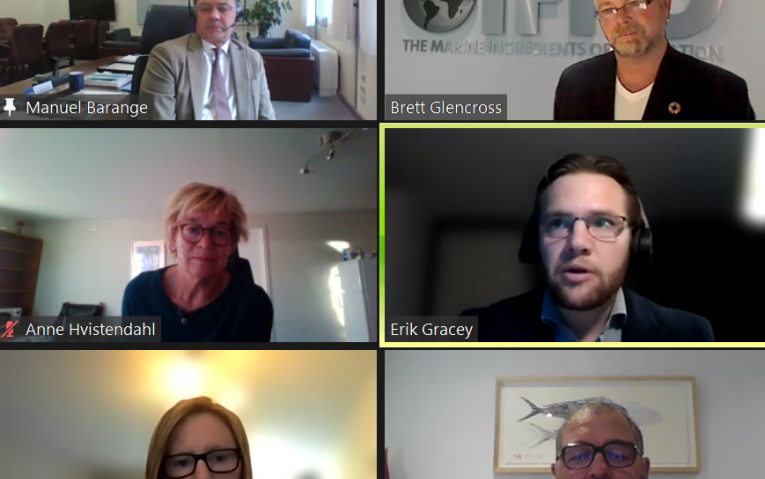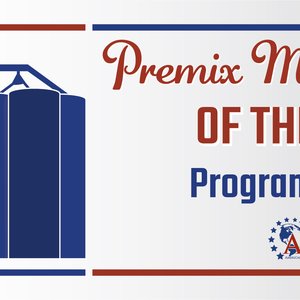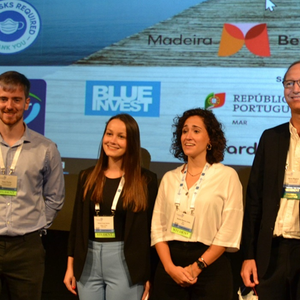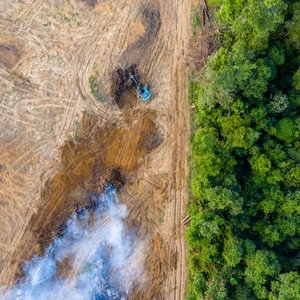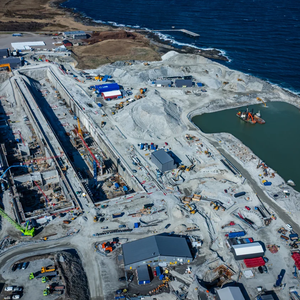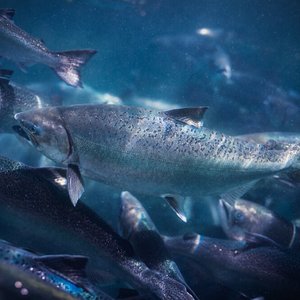IFFO – The Marine Ingredients Organization hosted a webinar from October 19-21 that was dedicated to its 235 members across the globe. Industry experts discussed market trends, nutrition, fish health and growth, sustainability and climate change in relation to the global marine ingredients sector.
Blue foods have a bright future
The webinar opened on blue foods, highlighting the potential from oceans and building on the conclusions of recent research papers such as the Blue Food Assessment papers and the Blue Papers commissioned by the High-Level Panel for a Sustainable Ocean Economy: better management and technological innovation can enable a sixfold increase in the supply of food from the ocean compared to current levels. “Where do marine ingredients stand? Our message is clear: Blue foods should be considered a key part of the global food system. And with marine ingredients supporting the production of blue foods, it is obvious that marine ingredients should follow the same path. It is just impressive to think that with 1 kg of marine raw materials, 5 kg of farmed fish are produced,” Petter Johannessen, IFFO’s director general, stated.
Industry resilience and interesting developments in specific markets
With three sessions dedicated to market trends, the webinar underlined the resilience of the Peruvian fishmeal and fish oil industry and the performance of the Chilean salmon market as well as the shrimp sector in the US, Ecuador and Vietnam. Further growth of the shrimp, pig and pet food feed consumption of fishmeal is expected while the annual feed production growth is expected by China Feed Industry Association to exceed the good level in recent years.
Marine ingredients’ footprint: A positive story
Byproducts already make up one-third of fishmeal and fish oil, but much more will come with the growth of the aquaculture sector that is itself producing byproducts and thus relieving pressure on the terrestrial environment, according to Anne Mette Baek, IFFO’s president. The marine ingredients industry relies on a low carbon value chain, from fishing methods to production and processing equipment. With climate change disrupting institutions, management systems, fishing operations, offloading/processing, markets and consumption patterns, adaptation can be more than a zero-sum game, if properly implemented. This was discussed during the webinar’s climate change panel discussion, which looked at implications of ocean warming: A 4.1% decline in the maximum sustainable yield has been observed over the past 80 years, according to FAO’s director of the Fisheries and Aquaculture Division, Manuel Barange.
Collaboration at all levels
Distributional changes in the biomass, although not geographically uniform, will make negotiations between states and regional frameworks even more instrumental. Adaptation should also be addressed through a value chain approach: Adaptation becomes possible only if it is followed throughout the value chain. A library of actions taken by IFFO members towards meeting the Sustainable development goals, available on www.iffo.com, highlights the interconnection of challenges and opportunities.
Challenges such as IUU, the potential of new raw materials or life cycle assessments, must be addressed through a collective lens. This is the aim of the newly launched Global Roundtable on Marine Ingredients.


